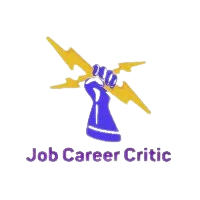Education Is Key To It All
Unlocking the fountain of youth has long been the aspiration of dreamers and scientists for millenniums. In the vast tapestry of life, we often overlook a vital thread that connects our well-being, dreams, and future – education. We recently stumbled upon an eye-opening article in The New York Times, one that highlights the undeniable role of education not just in shaping our living standards but in determining our lifespan as well. This revelation left us pondering the complex interplay between education and old age. How could education extend our lives when healthcare in the United States is available to everyone?
Education’s Lifelong Impact:
Picture this: Back in the 1970s, when I was in college, roughly a quarter of the American population held college degrees. Today, it’s about thirty-three percent. The significance of this fact might have been limited to the added opportunities it provided to degree holders. However, beneath economic, social, political, and career benefits lay a fascinating discovery – higher education correlates with increased life expectancy and precludes those without it from participating in forums and politics to have their voices heard on healthcare. You might wonder how this is feasible, given the state of healthcare in America, and that’s a valid concern. Still, it follows a logical trail of being educated to make better decisions. These cognitive skills are needed today in navigating our chemically infested soil and food to improve the quality of life by avoiding them as much as possible..
The Economic Conundrum:
The latest job reports are in, and the US Labor Department reports a slight increase in payroll jobs with an unemployment rate at a historic low of 3.3%. On the surface, it seems all is well, with Americans earning higher salaries than ever. Yet, an unusual problem exists: despite earning more, a significant portion of the population feels dissatisfied with the economy. Why is that, and what’s the underlying reason? We believe at jobcareercritic.com, and it’s the powerlessness you feel at the pump, food checkout line, rent, mortgage, or dining out. Prices are outrageous, fueled by the gouging of consumers by greedy corporations. It’s like taking one step forward and one step back, stunting any progress. It’s an illusion of sorts.
The Power of Perception:
One key to this puzzle is that “perception is more important than reality.” Even though the average salary is an impressive $33.81, many jobs that offer this wage require a college degree, while most non-degree jobs are mired in the mid to high teens and beginning of the twenty-dollar-an-hour range. Far below their counterparts with degrees who are living large by their standards. This reality hit home during a family trip to Appalachia when a relative couldn’t participate in various activities due to financial constraints. Friends and relatives are aware their counterparts are also Gen-Zers but can’t quite figure out the financial gap until they think about their educational differences, and that’s when it hits home.
The Discontent at the Bottom:
For many Americans working jobs with average hourly wages, frustration simmers as they struggle to make ends meet. Higher wages are a double-edged sword when the cost of living rises takes a hefty bite from increased wages. We had a booming labor market in the 1970s until President Reagan’s administration began policies practically freezing salaries for forty years. MSNBC’s former host Ed Schultz named it the ‘Buzzard Line’ because of how long a buzzard has to wait for a meal. Seniors on fixed incomes find it increasingly challenging to make their monthly budgets without assistance and must participate in food pantries.
Education and Healthcare: Now, let’s delve into a crucial aspect – healthcare. The present is a precarious time for healthcare, even though we’ve eradicated some age-old diseases, many persist and will be the demise of them brought on by the permissions granted to agriculture giants to poison our food. Our two-tiered economic system inevitably extends into healthcare, leaving the less fortunate with limited access to proper medical care. Moreover, educated individuals have the privilege of choosing healthier foods, often opting for organic produce. It’s a well-known fact that many health issues arise from what we consume, and the gap between those who can afford healthier options and those who can’t is stark.
A Tale of Two Grocery Carts: The educated elite can often shop at stores like Whole Foods, Trader Joe’s, or other specialty shops. In contrast, the rest of the population shops at places like Jewel, Aldi, Save-A-Lot, Mariano’s, or local corner stores, where food quality is noticeably different, and their organic prices are high and variety is low. This divide in dietary choices can significantly impact the length and quality of our lives.
A World of Haves and Have-Nots:
In many ways, our world has always been divided between the haves and have-nots. The unfortunate reality is that this division will persist until we devise a more equitable system. Those already wealthy wield too much power and money to be toppled in this century. However, the key to experiencing the opportunities in America and other places in the world has to offer is through education. It may take vocational training or a college degree. Still, either path can be your ticket to an economically successful life, similar to the stories you’ve heard from friends and others.
Conclusion: The link between education and old age, while seemingly inconspicuous, is profound. Not only does education enhance our career prospects and economic status, but it also influences our longevity and quality of life. This realization sheds light on the importance of bridging the education gap and creating a more equitable society where opportunities for a prosperous life are available. So, the next time you hear a statistic about education, remember that it’s not just about degrees; it’s about rewriting the story of our lives.




